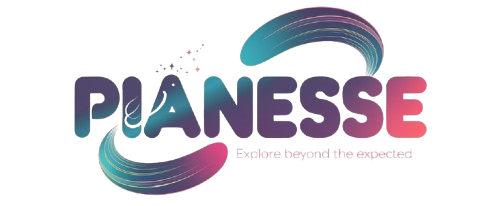Can You Steal Dacha Stellaris’ Tech?

Dacha Stellaris is a prominent figure in the realm of technology and innovation, known for her groundbreaking contributions to artificial intelligence and machine learning. With a background in computer science and a Ph.D. in cognitive robotics, Stellaris has dedicated her career to exploring the intersection of human cognition and machine intelligence.
Her work has garnered attention not only for its technical prowess but also for its potential applications across various industries, including healthcare, finance, and autonomous systems. Stellaris is the founder of a tech startup that focuses on developing advanced algorithms capable of mimicking human decision-making processes. Her team has made significant strides in creating systems that can learn from their environments and adapt to new challenges, which has positioned her as a thought leader in the field.
Beyond her technical achievements, Stellaris is also an advocate for ethical AI practices, emphasizing the importance of responsible innovation in an era where technology is rapidly evolving. Her influence extends beyond academia and industry; she is a sought-after speaker at conferences and a mentor to aspiring technologists.
Key Takeaways
- Dacha Stellaris is a renowned tech innovator and entrepreneur known for her groundbreaking inventions and contributions to the tech industry.
- Dacha Stellaris’ tech includes advanced AI algorithms, cutting-edge cybersecurity solutions, and revolutionary data encryption methods.
- While Dacha Stellaris’ tech may be tempting to steal, the consequences of such actions can be severe, including legal and ethical implications.
- The ethical implications of stealing Dacha Stellaris’ tech include the violation of intellectual property rights and the undermining of innovation and progress in the tech industry.
- The legal consequences of stealing Dacha Stellaris’ tech can result in lawsuits, financial penalties, and damage to one’s reputation in the industry.
What is Dacha Stellaris’ tech?
The technology developed by Dacha Stellaris primarily revolves around advanced machine learning algorithms that enable machines to process vast amounts of data and make informed decisions. One of her notable innovations is a neural network architecture that mimics the human brain’s ability to learn from experience. This architecture allows machines to not only recognize patterns but also to predict outcomes based on historical data, making it particularly useful in fields such as predictive analytics and personalized medicine.
In addition to her work on neural networks, Stellaris has pioneered techniques in natural language processing (NLP), which facilitate more intuitive interactions between humans and machines. Her NLP models are designed to understand context, sentiment, and nuances in human language, enabling applications ranging from customer service chatbots to sophisticated virtual assistants. The integration of these technologies has the potential to revolutionize how businesses engage with their customers, providing tailored experiences that were previously unattainable.
Can Dacha Stellaris’ tech be stolen?

The question of whether Dacha Stellaris’ technology can be stolen is complex and multifaceted. In the digital age, intellectual property theft has become a significant concern for innovators and entrepreneurs alike. Stellaris’ algorithms and models are protected under various forms of intellectual property law, including patents and trade secrets.
However, the nature of software and digital technologies makes them susceptible to unauthorized access and replication. Cybersecurity threats pose a real risk to the integrity of Stellaris’ tech. Hackers may exploit vulnerabilities in software systems to gain access to proprietary algorithms or sensitive data.
Additionally, the rise of open-source platforms can blur the lines between legitimate use and theft, as individuals may repurpose or modify existing code without proper attribution or permission. While legal protections exist, the challenge lies in enforcing these protections in an increasingly interconnected world where information can be disseminated rapidly.
The ethical implications of stealing tech
| Aspect | Implication |
|---|---|
| Legal | Violation of intellectual property laws |
| Economic | Loss of revenue for the original creators |
| Ethical | Betrayal of trust and fairness |
| Social | Erosion of respect for property rights |
The ethical implications surrounding the theft of technology are profound and far-reaching. At its core, stealing tech undermines the principles of innovation and creativity that drive progress in society. When individuals or organizations resort to theft rather than developing their own solutions, they not only compromise the integrity of their work but also stifle competition and discourage investment in research and development.
Moreover, the act of stealing technology raises questions about accountability and responsibility. For instance, if a company benefits from stolen technology, it may inadvertently perpetuate a cycle of unethical behavior within the industry.
The ethical landscape becomes even more complicated when considering the potential consequences for those whose work has been appropriated; they may face financial losses, diminished reputation, and a lack of recognition for their contributions.
The legal consequences of stealing tech
The legal ramifications of stealing technology can be severe, encompassing both civil and criminal penalties. Intellectual property laws are designed to protect creators from unauthorized use of their inventions, and violations can result in lawsuits that seek damages or injunctions against further use of the stolen technology. For instance, if an individual or company is found guilty of infringing on a patent held by Dacha Stellaris, they could face substantial financial penalties as well as the obligation to cease using the infringing technology.
In addition to civil liability, criminal charges may also apply in cases of tech theft, particularly when it involves hacking or corporate espionage. The Computer Fraud and Abuse Act (CFAA) in the United States provides a legal framework for prosecuting individuals who access computer systems without authorization with the intent to commit fraud or other illegal activities. Convictions under such laws can lead to hefty fines and imprisonment, serving as a deterrent against tech theft.
How to protect your own tech from being stolen

Protecting one’s technology from theft requires a multifaceted approach that combines legal safeguards with robust cybersecurity measures. First and foremost, securing intellectual property rights through patents, trademarks, and copyrights is essential. By formally registering innovations, creators can establish legal ownership and gain recourse against potential infringers.
In addition to legal protections, implementing strong cybersecurity protocols is crucial for safeguarding sensitive information. This includes employing encryption techniques to protect data both at rest and in transit, utilizing firewalls to block unauthorized access, and conducting regular security audits to identify vulnerabilities.
Alternatives to stealing tech
Rather than resorting to theft, there are numerous ethical alternatives for acquiring technology that foster collaboration and innovation. One such alternative is licensing agreements, where companies can negotiate terms to use another’s technology legally while compensating the original creator. This approach not only respects intellectual property rights but also encourages partnerships that can lead to further advancements.
Another viable option is engaging in open-source development, where individuals and organizations share their technologies freely with the community. This collaborative model allows for collective improvement and innovation while ensuring that contributors receive recognition for their work. By participating in open-source projects or contributing to existing ones, companies can leverage shared knowledge without infringing on others’ rights.
The future of tech theft and protection
As technology continues to evolve at an unprecedented pace, so too will the methods employed by those seeking to steal it. The rise of artificial intelligence and machine learning presents new challenges for protecting intellectual property, as sophisticated algorithms can be used to bypass traditional security measures. Consequently, organizations must remain vigilant and proactive in adapting their strategies for safeguarding their innovations.
Looking ahead, advancements in blockchain technology may offer promising solutions for protecting intellectual property rights. By creating immutable records of ownership and transactions, blockchain could provide a transparent framework for verifying the authenticity of digital assets. This could significantly reduce instances of tech theft while fostering trust among creators and consumers alike.
In conclusion, as we navigate an increasingly complex technological landscape, understanding the implications of tech theft—both ethically and legally—becomes paramount. By prioritizing protection strategies and exploring collaborative alternatives, innovators like Dacha Stellaris can continue to thrive while contributing positively to society’s technological advancement.
FAQs
What is Dacha Stellaris?
Dacha Stellaris is a popular grand strategy game developed by Paradox Interactive. It is set in space and allows players to explore, expand, exploit, and exterminate in a vast galaxy.
What is “Tech” in Dacha Stellaris?
In Dacha Stellaris, “tech” refers to the technological advancements and research that players can acquire to improve their empire’s capabilities and unlock new features.
Can You Steal Tech in Dacha Stellaris?
Yes, it is possible to steal technology from other empires in Dacha Stellaris through espionage and diplomacy. Players can use various tactics to acquire the technological advancements of their rivals.
How Can You Steal Tech in Dacha Stellaris?
Players can steal tech in Dacha Stellaris through espionage actions such as infiltration, sabotage, and covert operations. Additionally, diplomatic actions such as forming research agreements or alliances with technologically advanced empires can also lead to the acquisition of their technology.
Are There Consequences for Stealing Tech in Dacha Stellaris?
Yes, there can be consequences for stealing tech in Dacha Stellaris. If caught, the targeted empire may retaliate with diplomatic or military actions, leading to potential conflicts and strained relations. Additionally, other empires may view the player as untrustworthy, affecting future diplomatic interactions.







